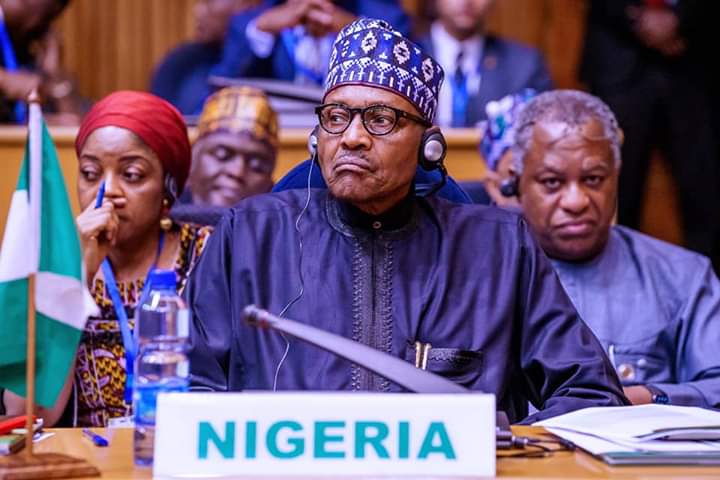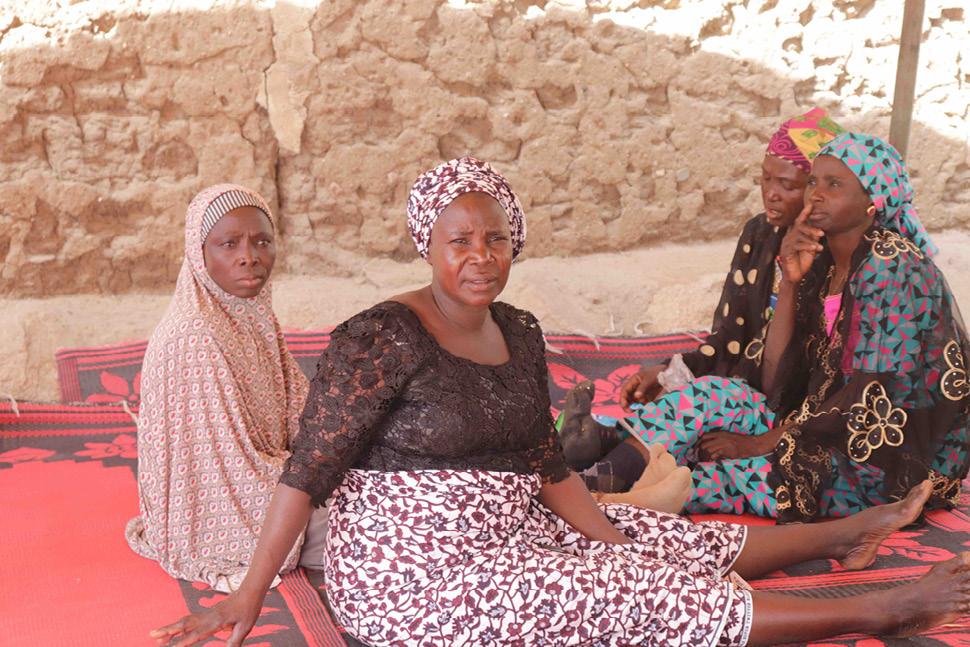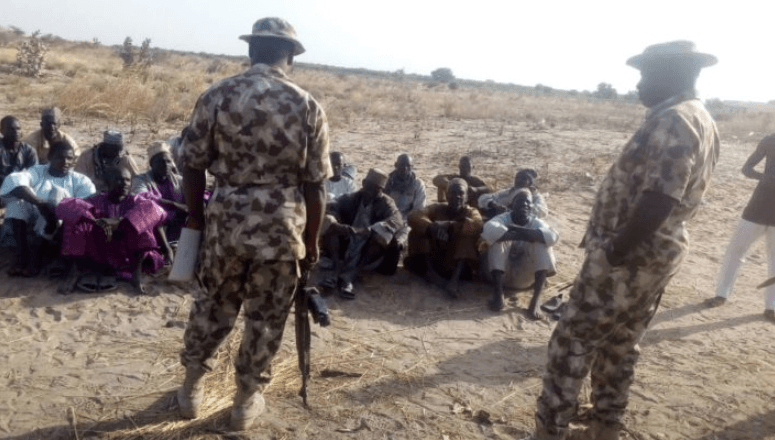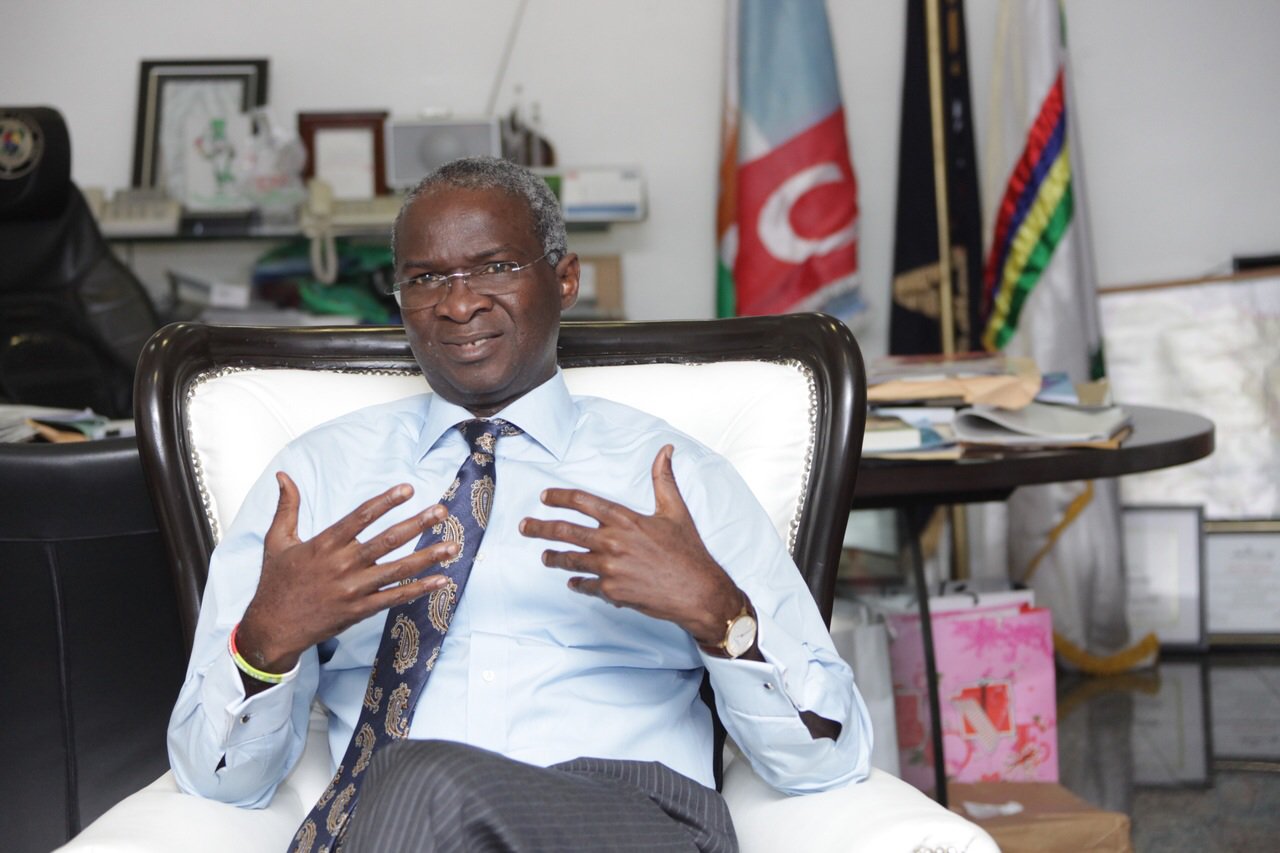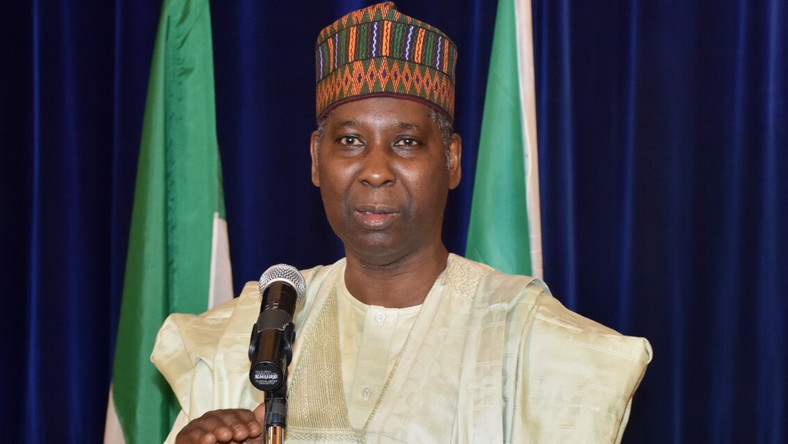President Muhammadu Buhari on Monday obviously indicted his own government at the High Level Breakfast Dialogue on “Stop the War on Children Affected by Armed Conflicts, Dividend of Silencing the Guns”, a side event during the 33rd AU Summit in Addis Ababa, Ethiopia.
Speaking on the occasion, according to a statement released by Garba Shehu, Senior Special Assistant to the President on Media and Publicity, Buhari said, “the incidence of a single violation of children rights in any country is an indelible dent on the African consciousness”.
For the records, Children’s rights are a subset of human rights with particular attention to the rights of special protection and care afforded to minors.
In 1989 something incredible happened. Against the backdrop of a changing world order, world leaders came together and made a historic commitment to the world’s children.
They made a promise to every child to protect and fulfil their rights, by adopting an international legal framework – the United Nations Convention on the Rights of the Child.
Contained in this treaty is a profound idea that children are not just objects who belong to their parents and for whom decisions are made, or adults in training. Rather, they are human beings and individuals with their own rights.
The Convention says childhood is separate from adulthood, and lasts until 18; and that, it is a special, protected time, in which children must be allowed to grow, learn, play, develop and flourish with dignity.
Under the terms of the convention, governments are required to meet children’s basic needs and help them reach their full potential. Central to this is the acknowledgment that every child has basic fundamental rights.
These include the right to life, survival and development; protection from violence, abuse or neglect; an education that enables children to fulfil their potential; be raised by, or have a relationship with, their parents, and express their opinions and be listened to.
President Buhari himself acknowledged these rights in Ethiopia when he urged African countries and stakeholders on the continent to work fervently towards strengthening the protection of children from the six grave violations during armed conflict.
The six grave violations, he said, are killing and maiming of children, recruitment or use of children as soldiers, sexual violence against children, abduction of children, attacks against schools or hospitals and denial of humanitarian access for children.
He accordingly expressed concern, confirming that these grave violations against children have continued unabated, even in his country.
”Of course, the severity of these grave violations varies from country to country. The incidence of a single violation of children rights in any country is an indelible dent on the African consciousness and is to be deplored and condemned,” Buhari told those who cared to listen to him in Ethiopia.
Needless to say, the reality on ground in Nigeria does not guarantee the Nigerian child the rights as laid out by the Convention, which the President highlighted.
Coincidentally, while Buhari was addressing the audience at the High Level Breakfast Dialogue during the 33rd AU Summit in Addis Ababa, reports were emerging that Boko Haram terrorists had killed at least 30 people, and abducted many women and children in a raid in Borno State.
This is not the first time the Boko Haram terrorists would strike, inflicting severe pains on Nigerians. The world will never forget in a hurry how the terrorists on the night of 14–15 April 2014 kidnapped 276 female students from a Secondary School in the town of Chibok in Borno State.
Fifty-seven of the girls escaped shortly after the kidnap. Another 107 were either rescued or released after negotiations while 112 remain in captivity.
The President Buhari’s All Progressives Congress (APC) government came into power on the promise of securing the country from external and internal threats, making it look as if the masses caused a big problem by voting in the government.
Ten years after Boko Haram’s founder, Mohammed Yusuf was murdered in police custody after a crackdown on his followers, the terrorists, and the derivatives in herdsmen, armed bandits and kidnappers have continued to cause mayhem across states of the federation, unabated, especially by the complicity of the government of the day.
On February 19, 2018, 110 schoolgirls, who fall under the age range stipulated by United Nations Convention on the Rights of the Child, were kidnapped by the Boko Haram terrorist group from the Government Girls’ Science and Technical College (GGSTC) in Dapchi, under the supervision of the Buhari’s government.
While the government negotiated the freedom of 104 schoolgirls, the group held back Leah Sharibu because she refused to recant her Christianity. She had since given birth to a male child for a Boko Haram commander in captivity.
In July 2019, in the area of Nganzai, a village to the north of Maiduguri, Borno’s state capital, more than 60 men, who were walking back to their village after funeral prayers for a relative, were killed in cold blood.
On Christmas Eve in a raid near the town of Chibok, same town in northeast Nigeria’s Borno state, where 276 schoolgirls were kidnapped, Boko Haram jihadists killed seven people.
Dozens of fighters driving trucks and motorcycles stormed into Kwarangulum in the raid, shooting fleeing residents and burning homes after looting food supplies. They also abducted a teenage girl in the attack.
Days before that attack, Boko Haram splinter group ISWAP executed 11 Nigerian Christians over Christmas 2019 and released a video on December 28 reminiscent of the 2015 video of the beheadings of 21 Christians on the Libyan coast.
In April, the Boko Haram terrorists had also raided Kwarangulum, stealing food and burning the entire village.
In November 2019, Global Terrorism Index (GTI) pegged the number of those killed by herdsmen in the previous year at 1,700.
No gainsaying the list of killings in the country is endless.
Only recently, 18 days after he was kidnapped by Boko Haram, Rev. Lawan Andimi, a senior leader in the Christian Association of Nigeria (CAN) and father of nine children was violently executed, reportedly by a teenage Boko Haram soldier.
According to the United Nations (UN), the decade-long conflict has killed 36,000 people and displaced around two million from their homes in the northeast.
The number of attacks continue to increase, leaving millions of displaced people dependent on aid that is rarely sufficient.
While the government continues to mobilise and station troops, deadly Boko Haram raids continue. Boko Haram factions continue to wage a bloody insurgency against the Nigerian security forces and civilians, defying government attempts to destroy the group.
This resulted in the Senate under the leadership of pro-Buhari Senator Ahmad Lawan passing a vote of no confidence on the military, police and other security structures in the country recently.
That President Buhari is coming out to say “the incidence of a single violation of children rights in any country is an indelible dent on the African consciousness and is to be deplored and condemned”, is an indictment of his government.
Therefore, the so many insecurity situations in the country, resulting in the violation of children’s rights in the country, are indelible dents on the Buhari’s administration.
If the President has a conscience at all, the many atrocities perpetrated by Boko Haram, herdsmen, armed bandits, unabated by the obvious complicity of the government, will remain ever indelible dents on his consciousness.
According to Senator Enyinnaya Abaribe, the President should resign, honourably.
